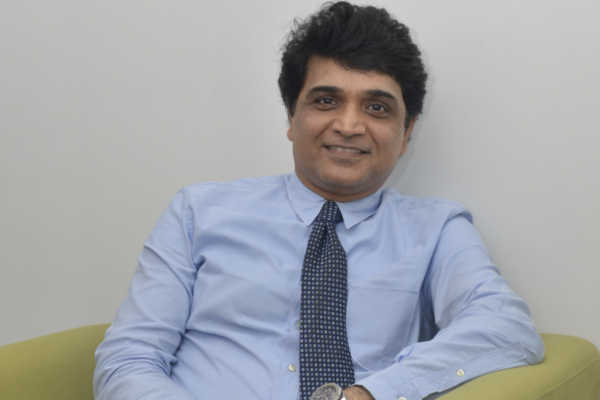In an interaction with Express Computer, Anil Bhasin, MD – India and SAARC region, Palo Alto Networks, sheds light on the changing security trends, and the company’s position and strategy for in the cyber security space
What are current trends prevailing in the IT industry and how it is impacting the enterprise security domain?
For the last few years, we are witnessing three irreversible trends – globalization, digitization, and mobility. The glue to all these have been the Internet. And the underlying concern for customers as well as partners is security. Today, this conversation has moved from IT level to the board level today. Security has become a strategic imperative where as earlier, it was just a tactical necessity.
The role of a CIO has also morphed into a CDO. From the organization standpoint, you need to understand your digital strategy and security has to be embedded into it. As part of the model to stay competitive, customers are moving to cloud. Cloud has become a reality today. If you look at Office 365, most of the organizations use this as a tool. Today, customers have learnt to live in the hybrid environment.
The challenge and excitement for the companies like us is to help assure our customers that we will prevent attacks and most importantly, secure their data regardless of where it resides. From our side, we are also seeing a transition wherein customers are seeing us ‘cyber security partners’ and not OEMs. It is our ability to help them and convince them their data is secure and it is our responsibility as their partners to prevent attacks and secure their data. This realization is also helping fuel our growth. It is evident with the fact that in Q4 alone, we acquired around 3000 customers globally. Customers understand that it is all about people, process, and technology integrated together.
As much as the world is going digital, there are companies like Palo Alto Networks who carry the conviction of helping customers get secured in the digital world. Our job is to make their life as well as experience safe. We make applications safe for use. Integration and automation will hold the key and at the top of it, prevention will become the new normal.
Looking at the changing market dynamics, what sort of innovation have been brought in your product lines?
The first thing for us is really about graduating customers’ thought process from looking security as tactical necessity to a business strategic imperative. The other piece is how we help them have a visibility of everything that’s running in the network. Our approach has been in terms of open architecture where we allow an ecosystem to co-exist or giving a business solution related to security and leverage each others strengths. We have an ecosystem of partners like Microsoft Azure or VMware Arista wherein we are cross leveraging each others’ strengths in order to build an ecosystem and provide the customer a complete solution where he feels secure.
The other point is how we are bringing threat intelligence to the customers and provide actionable intelligence that can then be treated in an integrated and automated fashion. The ability to use the current skill sets of customers and help them through processes as well as technologies – where you have the threat intelligence available to you, then in that case you have to treat it in the automated fashion. Everything from Palo Alto’s standpoint is today available as a service. And the idea is to provision services as fast as possible in real-time basis and process the threat intelligence that we see and apply that across the customers’ infrastructure so that we can help prevent attacks.
We try and look at the concept of technologies through the prism of providing that as a service. For example, IPS-as-a-Service, APT-as-a-Service and that allows us to create a self-feeding mechanism where we just need to see the threat once across the globe and if we have learnt about the threat, we can apply that intelligence across all of the customers’ next generation platform that they have brought from Palo Alto Networks in a split of a second in real-time basis. We have been very successful in this approach.
What’s your current penetration in the domestic market?
In India, we work across all verticals and the maturity of any vertical dictates the adoption of security. We work with government, defence, BFSI, telcos, education, and IT/ITeS sectors among others wherein we help them secure their networks and infrastructure. We are working very closely with the enterprises, be it private or government, and provide them security in the digital age.
How’s the role of channel partners evolving in this digital disruption era?
The role of Managed Security Service Providers and Cloud Security Service Providers are undergoing a change. It’s about how do we see the transition happening from people using application information. Today, a lot of customers have cloud strategy in place. If you look at players like Amazon, Microsoft and Google, there is a lot of push coming from these biggies as they are impending benefits attached to the cloud.
While the role of MSSPs and CSSPs are evolving, we see a lot of consulting players get into the security space. As stated earlier, security is a complete solution where you have to take ownership from end-to-end perspective. Going forward, we will also see unconventional channel players fulfilling the security requirements.
In future, we will have just 2 categories of partners – the first one would be Generalists doing everything and other would be Specialists focusing on one particular domain. For example, security is a very highly specialized area and we will see specialized partners working in this space. Apparently, these specialized channel partners are already developing and there are companies whose focus is just on offering complete security solutions. Looking at the criticality of security, customers are also demanding that they want to work with specialized security partners and not generalists.
Could you articulate your channel strategy for the India market?
We have a very clear plan for the India market wherein we have categorized partners as specialists and generalists. And we are explaining the same to our customers as well. We look at what they want as it’s a choice that they have to make.
While we are taking this approach, we are clearly focused on enabling our channel so that they become as ready as possible in terms of understanding the skills required to mitigate the changing threat landscape. In fact, we use the same curriculum that we have for our own employees for the training of partners as well as customers. We believe that partners should have the same level of expertise as customers.
Across the globe, we don’t sell directly to the customers. We follow the indirect model wherein the selling is done through channel partners only. Our focus is on evanzeliging and helping customers think-through in terms of what they can we do with our architecture and technology and how can these be helpful to them in their context.
We are happy to see more and more channel partners leaving the legacy companies and willing to join Palo Alto Networks. From the customers standpoint, the shift from remediation and product approach to prevention and architecture approach and with this the growing demand for specialized partners is helping the channels in a big way.














